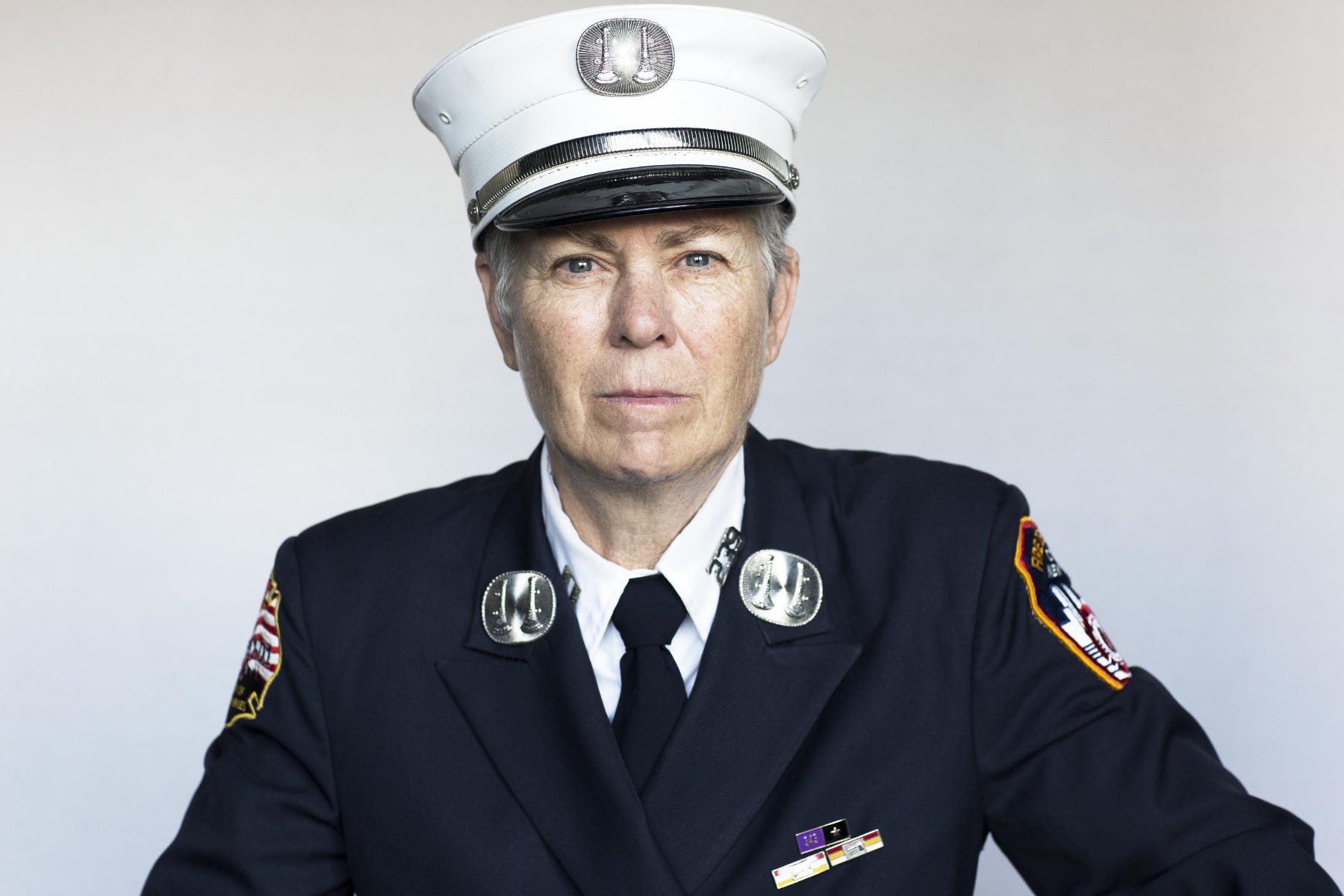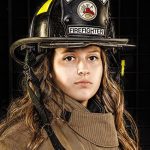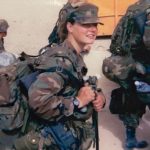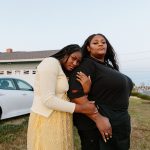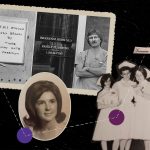On the easternmost corner of ground zero on the afternoon of September 11, 2001, Brenda Berkman and a small group of her fellow firefighters stood before a wall of flames and dust. Both towers had already collapsed, but every other building on the street was ablaze, including the 47-story 7 World Trade Center.
Berkman, then a lieutenant with 20 years of experience, was off duty that morning when she got a call to turn on her television. As the image of the first tower collapsing replayed on the screen, she grabbed whatever gear she could find and rushed to her former Brooklyn firehouse, where she put on another firefighter’s uniform, boarded a police van and headed across the bridge toward the smoke.
The firefighters who responded that day were met with an impenetrable landscape of debris, ash and darkness. Sheet metal, rebar and steel was strewn across the street. They could hardly see more than a few feet ahead of them. It was a field of razor blades, Berkman thought.
As she watched fire lick the buildings around the collapsed towers, Berkman realized that thousands of people were surely inside. She also knew that it would be nearly impossible to get to them, but that they must try — and that they might die doing it. They only barely made it into another building for cover when 7 World Trade creaked loudly before collapsing at 5:20 p.m.
The names of fallen firefighters and of those missing spread quickly as they continued with rescue efforts. The on-duty lieutenant in Berkman’s company — the person in the job she likely would have done if she had been on duty — died along with two others trying to evacuate people from the Marriott hotel within the World Trade Center complex.
For some time, people thought Berkman was missing, too. Firefighters assumed it was Vincent Brunton — a Brooklyn captain whose uniform she wore, whose name was on her back — scouring through the wreckage. Berkman would later learn that Brunton had died climbing up to the South Tower before it collapsed earlier that morning.
In the haze of the months that followed, work continued for the first responders. They worked as they grieved: Berkman knew 250 of the 343 firefighters killed. She never watched the media coverage of the attacks in the weeks that followed. So she was surprised when she started getting phone calls from other women firefighters she knew across the country.
What is going on in New York? they asked her. There were no women — not just women firefighters, but no women first responders at all — in the coverage of the day, though they knew women, including Berkman, had been there.
That struck Berkman. It was because of her that women were able to join the ranks of the New York City Fire Department in the early 1980s after she sued the department. And here, on what would become one of the most harrowing days in American history, the service of the women firefighters was being erased.
“They were saying, ‘Well, there were no women firefighters killed there, and so, therefore, there weren’t any women there, or the women there were useless because they weren’t killed,’” Berkman said. “It’s like we had to be killed doing our job.”
Three women first responders — Port Authority Police Department Captain Kathy Mazza, New York Police Department Officer Moira Smith and EMT Yamel Merino — were killed at ground zero. Dozens of others responded to the scene, including the 25 women firefighters who were part of the department at the time. But the focus of the coverage at the time was on the heroism of the firemen and policemen. Women were only spotlighted as widows or nurses, another example of how women are often erased from history, Berkman said.
But she wasn’t sure how she could broach the subject. At the time, there was a culture of unity among the 9/11 first responders. Criticizing might be deemed unpatriotic.
But, she remembers thinking: “What’s more patriotic than to point out that everyone in the United States, including the women and people of color and LGBT community, that they’re all doing the right thing — everyone is pulling together, everyone is making sacrifices?” Berkman, 69, told The 19th ahead of the 20th anniversary of 9/11.
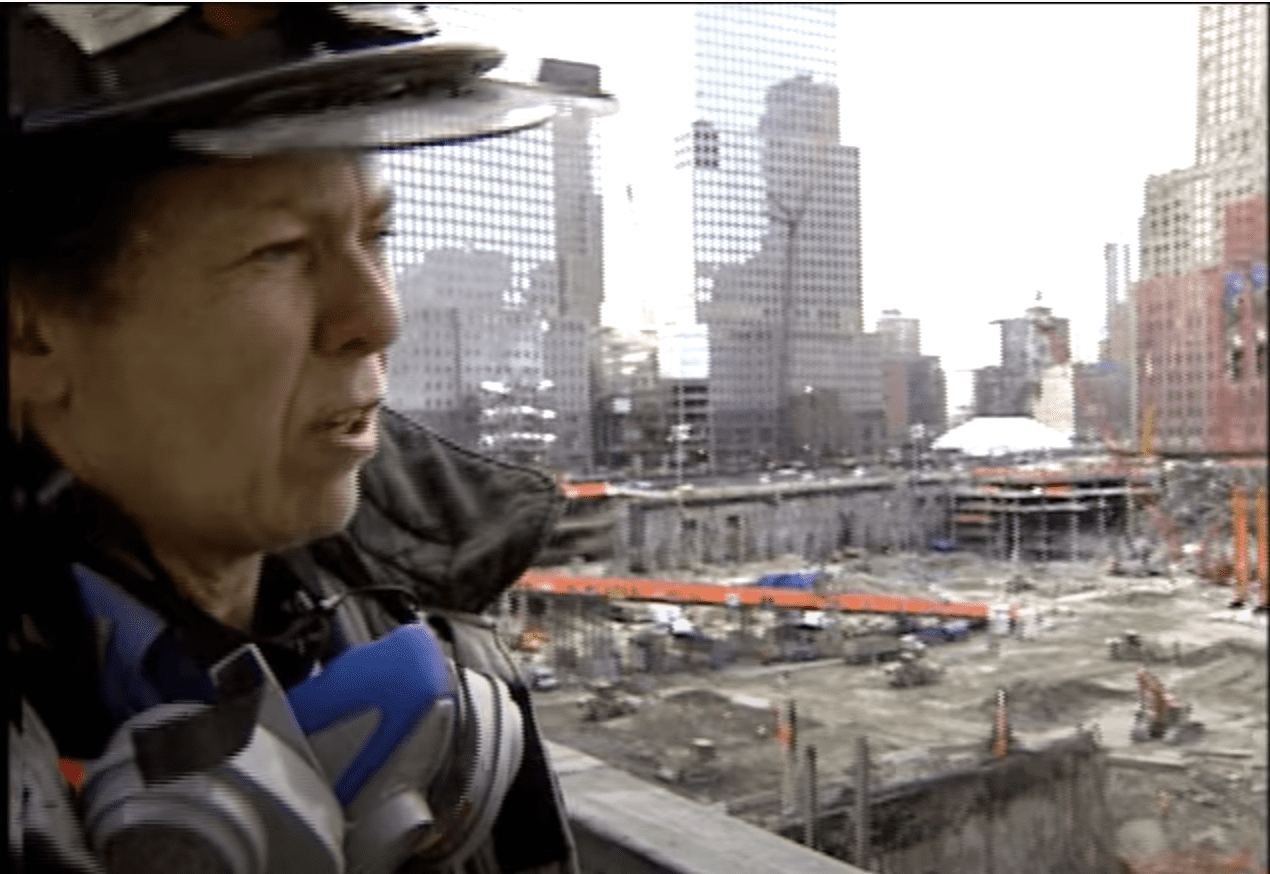
In the years since she retired as a captain in 2006, much of Berkman’s work has been consumed by ensuring that women continue to be part of the narrative — the true narrative — of what really happened that day on ground zero. She has traveled across the country speaking to lawmakers, giving speeches and collaborating on a video that highlights the women who served, as well as showcasing her original artwork that captures her personal connection with the events of 9/11. She has also worked to elevate the stories of other historical women, working with Monumental Women, a nonprofit that created the first statue of women trailblazers in Central Park.
Berkman took part in a book published in 2002, “The Women at Ground Zero,” that featured first-person accounts from the women first responders on the scene. But it took years before media coverage of 9/11 became more inclusive.
It was a decade before Berkman got a call from CNN to be featured in a documentary by Soledad O’Brien called, “Beyond Bravery: The Women of 9/11.” Another feature Berkman pitched in the months after the attacks to ABC would have included candid stories from women first responders. It was never aired.
And though there has been a shift, it is only now, as the 20th anniversary approaches, that the calls for more appearances have picked up, Berkman said. There is more interest in finally telling the story of the women who responded to the terrorist attacks.
Berkman understands better than most the years-long fight it took to ensure women could even join the fire service and secure their spots among the first responders who served at ground zero.
In 1977, when the New York Fire Department finally opened up applications for women, Berkman was among the first group to apply. She was in her third year of law school at the time. She and 400 other women passed the written exam and prepared for the physical portion. At the time, Berkman was a marathon runner and a cross-country skier. She chopped wood, lifted weights and carried her now-ex-husband up and down the stairs in preparation. She was in the best shape of her life.
But the city altered the exam, she later learned, making it impossible. At one point, Berkman was asked to throw a 120-pound duffle bag over her shoulder and carry it up three flights of stairs and then down three flights. That would never happen on the job — who carried people into burning buildings? Often, they were dragging people away from fire because they were unconscious, not carrying them on their backs.
Her law training caused something to prickle: This exam wasn’t testing job-related skills — she could take legal action. When she brought that up to the city, they said, “sue us, we aren’t changing it,” Berkman said.
So she did, and in 1982 she won.
After the suit, Berkman and 40 other women passed an altered exam. But the fight would continue long after that day. Berkman sued again when she and another woman firefighter who had been vocal on issues for women in the service were fired following a required probationary year on the force. Berkman won that lawsuit, too, proving that the terminations were the result of discrimination, not poor performance.
Even still, Berkman and the other women firefighters faced years of harassment and discrimination. She received death threats and intimidation, with people following her to her apartment, she said. Some of the men firefighters would mess with her equipment, draining her air tank or putting rats in her uniform. They wouldn’t eat with her. They would remove the locks from the bathroom stalls.
The department struggled to adjust, too — her uniforms didn’t fit, her boots were too big. The 40 women who joined the force were also separated into different battalions, only one in each, so they rarely saw each other.
The pressure was immense, Berkman recalled. Everything they did was watched and scrutinized.
“If a guy made a mistake, it usually wouldn’t be attributed to the fact that he was a guy,” Berkman said. “But if a woman made the mistake, ‘Oh it’s because women are weaker and not as brave,’ not because she just didn’t know what to do. … It was because all women are weak. So it was this huge pressure that a lot of women felt that they had to be perfect. … You don’t perform your best when you’re under a microscope.”
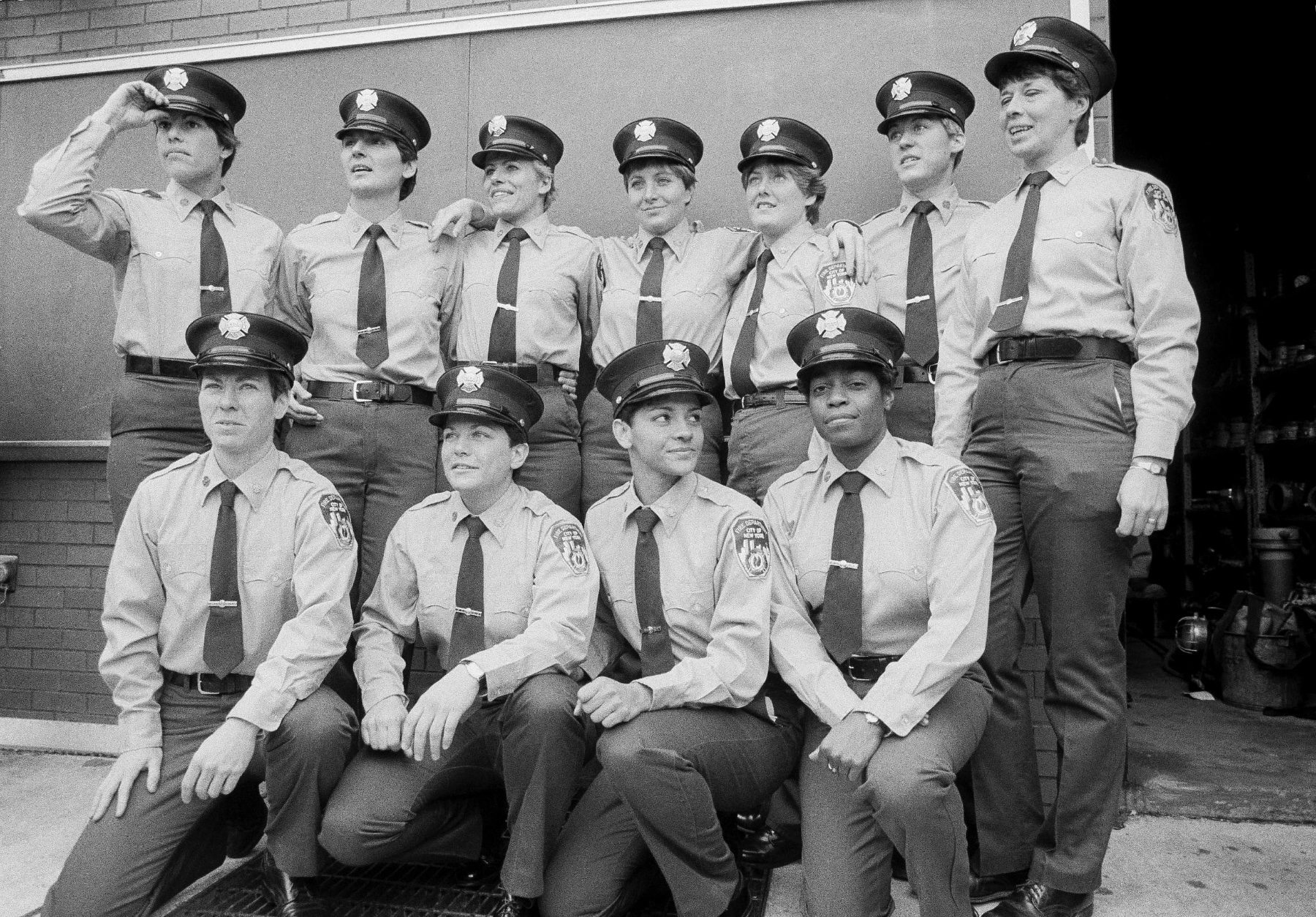
That went on her entire career. Even on her last day of work before retiring, Berkman said she received harassing phone calls.
The field of fire fighting has changed very little. In 2001, 2.5 percent of the nation’s firefighters were women. Today, it’s only 4.4 percent. Uniforms are still not tailored to fit women, with many women firefighters reporting that baggy gear and too-big boots put their lives at risk. Firefighters, like most Americans, have little access to paid leave, one of the reasons the number of women dwindled in the years after Berkman won her case, she said. Of the 40 women in the initial class, 25 were left on 9/11. After 1982, when she won her lawsuit, it took 15 years before four more women firefighters were hired.
The ones who did join the force often faced the challenge of being a “first.”
“It’s gonna be hard to talk women into wanting to come on the job when they realize that in many cases they have to be the first because some departments have yet to hire their first woman or they had one and she left,” Berkman said. Still, departments haven’t fully “adjusted to the idea that there are women here, and we should welcome them.”
At President Joe Biden’s inauguration, a woman firefighter, Andrea M. Hall, was chosen to recite the Pledge of Allegiance — a moment Berkman said was “fantastic” — bringing attention to women firefighters at a national stage. Hall was a first: the first Black woman to join the City of Albany Fire Department in Georgia in 1993, and then the first Black woman to serve as fire captain in 2004 at Fulton County Fire Rescue.
Like Berkman, Hall told The 19th that “there is a lot riding on your ability to be successful in that role” and that she hoped to serve as a role model for other women hoping to join the service.
The experience women and other marginalized people bring to the job is the reason diversity is an asset, Berkman said.
“If people have a different experience that they bring to the job, they may see something that’s really dangerous or they may think of something that’s really helpful in terms of operating that they can bring to the team — it’s a team effort,” Berkman said. “It’s really good to have difference.”
Heading into the 20th anniversary of 9/11, Berkman feels like it’s all weighing heavier on her, for myriad reasons. In December, when more than 3,000 people died in one day from the pandemic for the first time, Berkman thought immediately of how that was the same number as on 9/11. When the stories of women being silenced and killed in Afghanistan as the Taliban took control once again started to spread earlier this summer, she thought of women being erased once again.
This year, she probably won’t attend any ceremonies, but instead walk up to ground zero and see the two beams of light that shine in remembrance of the Twin Towers.
It’s the same image she’s captured in her artwork in the years since she left the fire service. Her series of 36 lithographs show the rebuilding of the New York City skyline. The centerpiece image is of a bright light, shining up from the place where she once stood herself 20 years ago.
